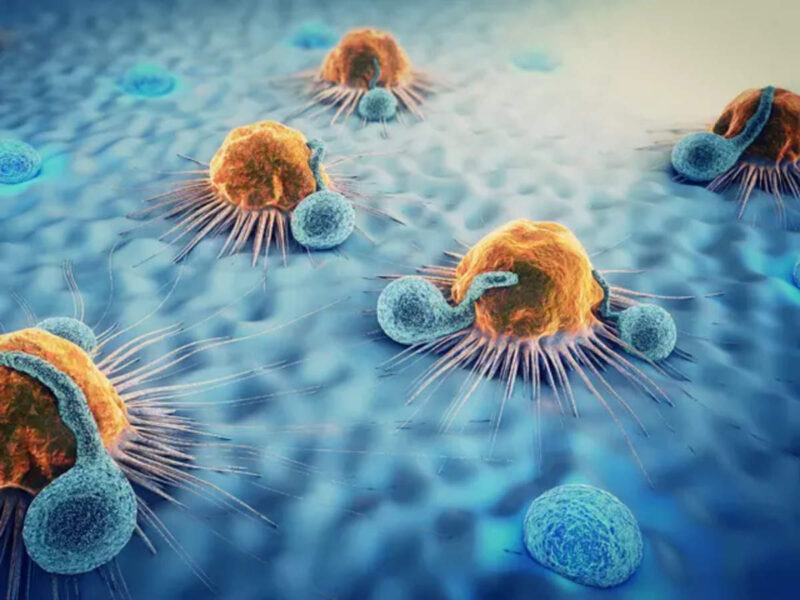New Delhi, August 27: A groundbreaking study published in The New England Journal of Medicine has revealed a promising new treatment for rectal cancer that could potentially eliminate the need for surgery in many cases. Researchers have found that a combination of radiation therapy, chemotherapy, and a novel drug called dostarlimab can effectively shrink tumors and prevent their recurrence.
The study, which involved 18 patients with early-stage rectal cancer, demonstrated remarkable results. After receiving this innovative treatment regimen, 17 of the 18 patients experienced complete tumor regression without the need for surgery. This represents a significant advancement in the treatment of rectal cancer, a disease that often requires invasive surgery and can have debilitating side effects.
Rectal Cancer Understanding the Treatment
The novel drug dostarlimab is a checkpoint inhibitor, a type of immunotherapy that helps to boost the immune system’s ability to fight cancer cells. By combining dostarlimab with radiation therapy and chemotherapy. Researchers were able to create a powerful treatment regimen that effectively targeted and eliminated the the deadly disease’s cells.
The Rectal Cancer Study’s Design and Findings
The study, known as CheckMate-648, was a phase II clinical trial that enrolled patients with early-stage rectal cancer that had not spread to other parts of the body. Participants received a combination of radiation therapy, chemotherapy, and dostarlimab over a period of several weeks.
After completing the treatment, patients were closely monitored for signs of tumor recurrence. The researchers amazed to find that 17 of the 18 patients experienced complete tumor regression. Meaning the deadly disease could no longer detected.
The Potential Impact of This Breakthrough
If further research confirms these results, this new treatment could revolutionize the treatment of rectal cancer. Surgery is often a complex and invasive procedure that can have significant side effects, such as incontinence and erectile dysfunction. By eliminating the need for surgery, this new treatment could improve the quality of life for countless patients.
What Does Study Says About Effectiveness?
While the results of this study are promising. More research needed to confirm the long-term effectiveness of the treatment. Larger studies with a more diverse group of patients will be necessary to determine the full potential of this approach.
The development of this new treatment for rectal cancer represents a significant milestone in the fight against the deadly disease. By offering a potentially curative option that avoids the need for surgery, this treatment could improve the quality of life for countless patients. As research continues, it hoped that this breakthrough will become a standard of care for rectal cancer patients in the near future.











